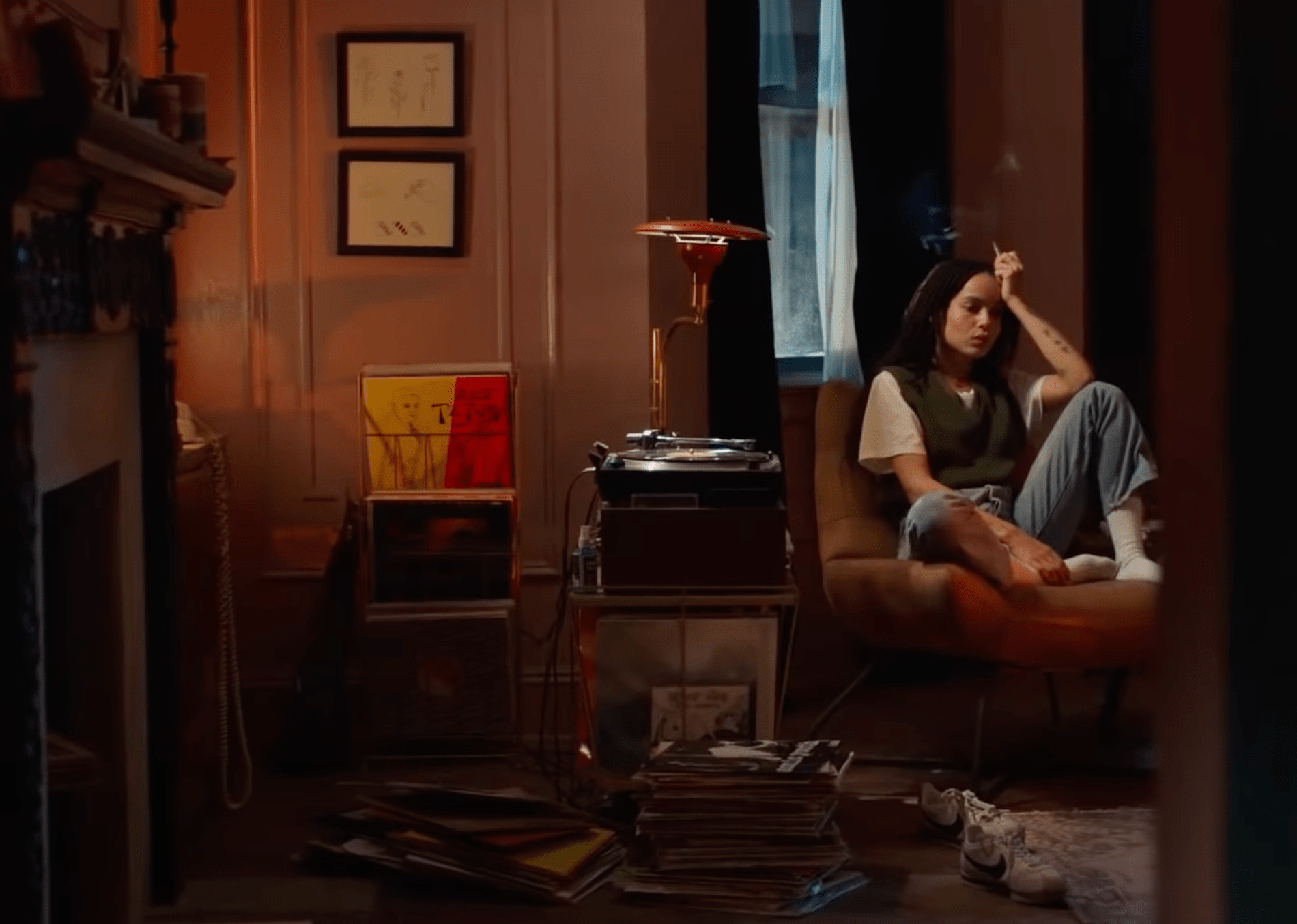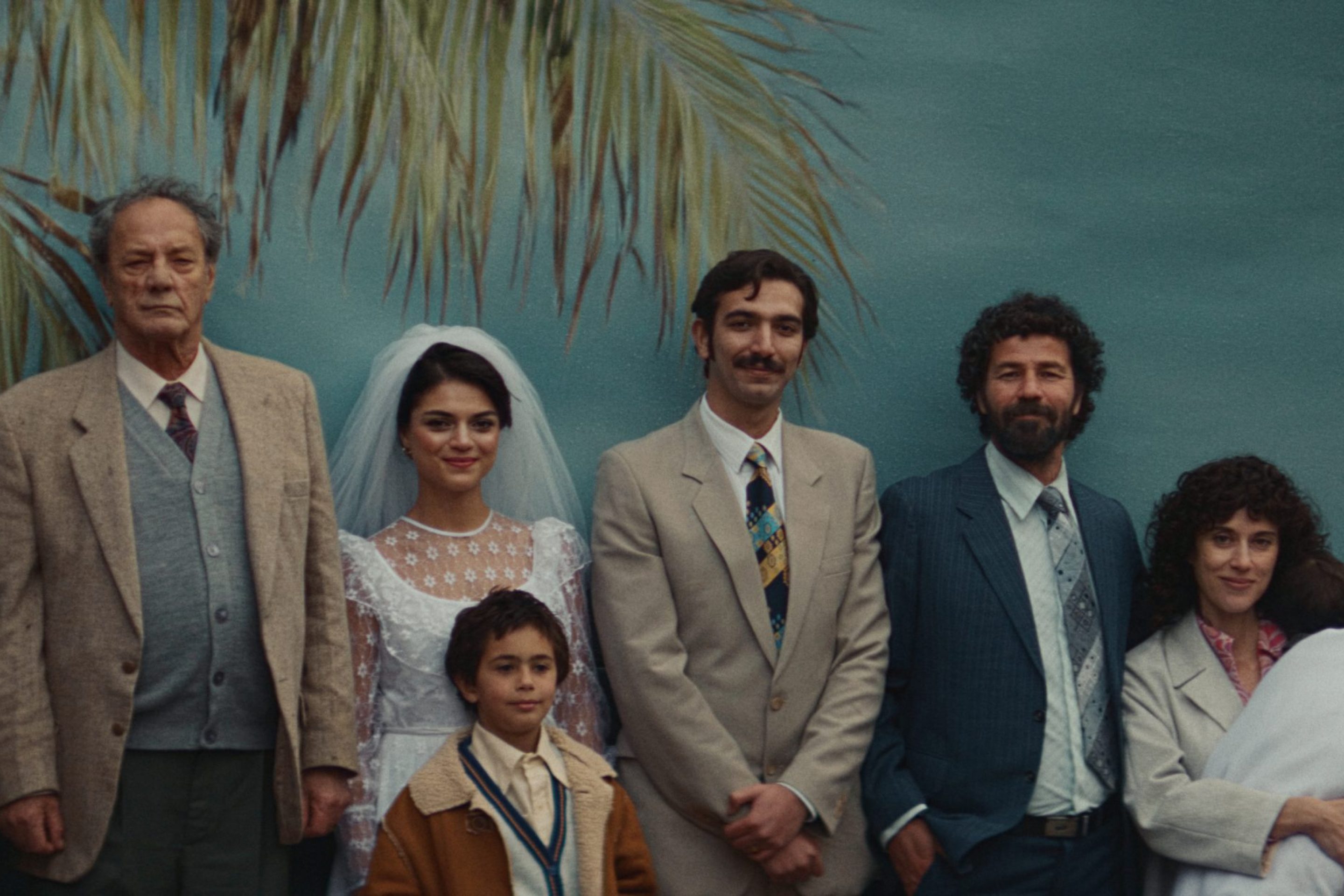There’s a scene in the new Superman movie that illustrates the precarious nature of music compatibility and how touchy it can get. Lois Lane (you know her, played by Rachel Brosnahan) and Clark Kent (David Corenswet), a.k.a. Superman, have a heated argument about their differences: She’s a reporter; he’s a bionic being from another planet. It all unfolded through the lens of rock, and the scene became viral for a reason.
In the middle of their conflict, Lois mocks Clark’s taste, calling herself just a “punk-rock kid from Bakerline.” He insists he’s punk rock too, citing the fictional pop-punk band Mighty Crabjoys and the real nu-metal band P.O.D. She shuts him down: “Those are pop radio bands. They’re not punk rock. The Mighty Crabjoys suck.” Clark replies, mildly wounded: “Well, a lot of people love ’em.” I couldn’t help but wonder … is this just banter, or foreshadowing for this mismatched couple’s inevitable breakup? (You’ll have to watch the movie. It’s great.)
The truth is, Clark’s taste might be pedestrian, but it’s not superficial. And maybe Lois is splitting hairs, but it’s her brain chemistry trying to compute his taste. It’s their personal histories getting tangled in minutiae. Like most of us, Clark’s palate has an emotional base. As NPR’s Ann Powers wrote in an essay about their punk-rock spat:
His outsiderness is existential. As an alien, an adopted child, and a genuine nerd saddled with the body of a jock, the young Clark Kent had plenty of internal struggles and probably some social ones; they just weren’t the kind that punk had originally celebrated. Pop-punk is what expanded the genre’s definition to make room for kids whose edges were perceived as softer, not fully formed.
I faced a similar dilemma back in the late 2010s when I regularly subjected myself to the whims of dating apps. One of my non-negotiables for a potential mate was musical taste. I often kicked off conversations with a simple question: “What music are you into right now?” Basic, sure! But music critics walk a fine line between being selective and being a snob. We’re almost as sensitive as musicians about our obsessions—yeah, it’s cliché to call music a love language, but it also happens to be true. And it’s cute.
Rhythm has helped regulate my mood since my teens. I’ve let crushes borrow the Rick Ross CD I burned, and debated friends and coworkers for hours on the subject of Brandy’s best deep cuts. If a romantic prospect wasn’t into hip-hop, R&B, or soul, it was a hard pass. I would never date a person who stanned Tory Lanez or Travis Scott—that usually meant we weren’t in the same generational bracket. Taste, though wildly subjective, reveals something about our interior world—and, for me, bad taste is a deal-breaker.
Plenty of creatives feel this, I’m sure. Film nerds, comic-book heads, gamers—it seems we all want a partner who gets our fixations, or at the very least doesn’t outright spurn them. Of course your person doesn’t need to live inside your community, but they absolutely must respect the depth of your enthusiasm within it. If both partners aren’t that sensitive about it (congratulations), it’s different. Plenty of movies have depicted this very dilemma, of course—the original High Fidelity and the 2020 television remake, starring Zoe Kravitz. Musicians have waxed poetic about it, too. A now-classic stance comes from Erykah Badu's "Tyrone"—the song's intro opens with the lines, "I'm an artist, and I'm sensitive about my shit." Bad Bunny nailed it when he wore a hat that read "STOP DATING PEOPLE WHO DON’T GET YOUR MUSIC." (Naturally, Kendall Jenner discourse followed in the comments.) I stand by that sentiment, and judge accordingly.
For music heads especially—not just critics—a particular assortment of anxieties breaches our brain. For me, it was: Will this person get my taste in gooey ’90s R&B? Do they like house music? Let’s say we get to the point of cohabiting. How many times can I play Justin Bieber’s Journals on the living room speakers before it irritates them? And by the way, what kind of speakers should we get? What about “I Wanna Dance With Somebody”—can I play it on loop? Will they dance with me? I like “No Letting Go” as much as the next person, but how long can I personally tolerate an unauthorized listening session of the LL Cool J and Dutchess remix?
So much of our obsession involves judging, critiquing, ranking, lauding, and reassessing catalogs. This type of canonizing can frankly become annoying to a partner who needs to disengage at some point. There are the top-five debates core to hip-hop and film. There’s knowing every detailed aspect of an album’s production, from songwriters to backstories, instrumentation, the deluxe versions and remixes, mixtapes versus EPs, the month and year of release, and so on. I can rattle off every obscure millennial rap act thanks to my time spent at XXL and Vibe—and from cranking that Soulja Boy at parties in my youth—but should I expect the same of a partner? Oh, also, did they listen to Keyshia Cole’s 2005 mixtape, and do they have the receipt from when they downloaded it from DatPiff? Do they even know what good music is?!
I’ve always set musical boundaries in my dating life, though mostly subconsciously. But as I navigated romance in my 30s, I had to figure out just how much it mattered to me. Somewhere along the way, I realized it was unrealistic to expect a partner’s library to match my collection of DMX, Jeremih, and Kimbra. That seems obvious to say, but it’s a quiet quirk any music lover has to manage or overcome at some point. My relationship with music—specifically R&B—is a result of decades of self-discovery, conversations with musicians, and years of loneliness that could only be cured by the claves inside a Maxwell groove or a good Mary J. Blige cry, and gradually refined.
Back on the apps, I made a point to mention music in my profile. During my brief, ill-advised stint on Steve Harvey’s now-defunct dating site, Delightful, in 2014, I wrote: “I’m looking for someone who’ll talk to me about stupid pop culture things, music and TV, someone who’s smart where it counts, compassionate and attentive. There are other important things too, but you’ll find out.” I was casting a particular net.
Years later, I met my current partner on Tinder, following a similar pattern. Early on in our chats, we volleyed questions like: “Do you listen to music while working?” (I do—mostly ambient or background vibes while writing.) “What’s in your playlist?” (His, at the time: A Tribe Called Quest’s We Got It from Here... Thank You 4 Your Service and Nine Inch Nails.) “What are you listening to now?” (Me: everything, always—while showering, commuting, cooking.) We bonded over ratchet bangers. I confessed that I didn’t listen to rock like he did, but was open; he mentioned he was learning bass. That was enough to keep the communication lines open. We didn’t match completely, but we met in the middle with a shared love of hip-hop and soul. Every year, he told me, he makes a playlist of songs he’s discovered or unearthed—an offering I now look forward to. He agrees on one thing: “If someone only wanted to listen to K-pop and hated my music, I don’t know how I could date that person,” he told me. Fair.
Still, at first, I was low-key disappointed we didn’t share the exact same obsessive overlaps. He didn’t feel the tingles I felt hearing Maxwell’s buttery coos on “Sumthin’ Sumthin’.” But we made a pact early on: regular music exchanges. When I recently asked what he remembers sharing over the years, he recalled: “Quicksand (labeled 'post hardcore'), Fishbone (funk metal; all-Black band, so I was hoping some soul in it might appeal). I probably played Chevelle and Alice in Chains too, but AIC is sometimes heavy, but is heavy on blues.”
Before we moved in together, we had a probably too-brief discussion about how we’d compromise when it came to our music listening habits at home, which also applied to car rides—he’ll now swiftly skip a chaotic heavy metal track that pops up on his playlist, unless I (very rarely) just let it rock. The middle ground is stuff like Jimi Hendrix or softer alt-metal like Deftones. When it comes to sharing and combining music styles, it’s easy to slip into thinking, This is stupid. I don’t get it. We agreed to practice gentle rejection with, for example, a simple thought: “I appreciate the musicality here, but this is not for me.” It’s probably the least Lois could’ve done.
In many ways, both Lois and Clark found solace in punk. Their disagreement is a genuine inflection point in a relationship where two people ultimately connect on many other levels. But their differences matter less than their shared passion for the concept of punk rock itself, whatever that means or doesn’t mean to them. These days, my partner and I are building a vinyl collection together, gradually refining each other’s tastes, which is maybe the most important kind of intimacy: a mutual curiosity. Passion meets compromise. I admit it’s refreshing not to be dragged into endless rap debates at home, the way I was in professional settings. It’s cool to create new rituals and, at the bare minimum, reasonable to expect your partner not to clown your preferences—unless it’s done with love.






